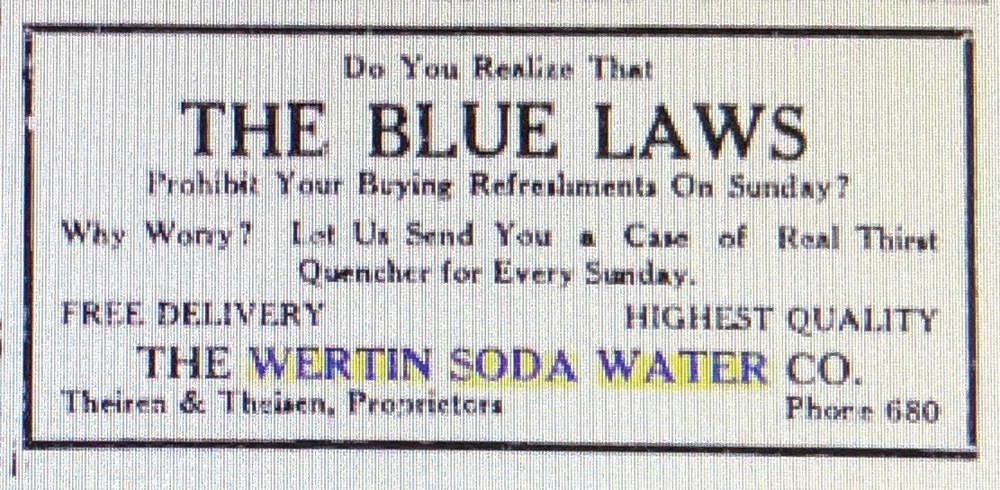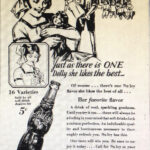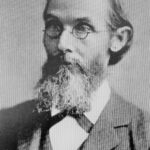Our grandson collects old bottles. While Sam prefers to find his treasures, he’s not opposed to buying them. He’s especially excited by bottles imprinted with the name “Dubuque.” Discovery of a “Dubuque” bottle always leads to a hunt for more information on the history of what the bottle once held, who sold it, and when it was sold. A few of Sam’s favorite “Dubuque” bottles and the stories behind them:
Wertin Soda Water Company – aqua, embossed beverage bottle
A 1910 Dubuque Telegraph Herald article reported, “There is more soda water made in Dubuque in the four factories here than is made in any other city in Iowa or in almost any city its size in the country.” In 1910, the Wertin Soda Water Company was one of the four, second in size to the Chris E. Kleis Factory but larger than the Williams Soda Water Factory and the North End Carbonating Company.
The Wertin Soda Water Company was founded in 1906 by former plumber and bartender George J. Wertin. Wertin ran the soda factory at 2082 White St. until his untimely death in October 1908. John S. Mayerle purchased Wertin’s factory late in 1908. By 1911, the factory had moved to 2293 Couler, now Central Ave., and also had new owners – Frank Theisen and Joseph K. Kaufmann. Later Kaufmann sold his share to Frank J. Schmitt.
In December of 1916, Edgar Theisen purchased half interest in the Wertin Soda Water Company from Frank Schmitt and continued operation with his uncle Frank Theisen at 317 Kaufmann Ave. The Wertin factory bottled all the popular soda flavors of the day, including ginger ale, orange cider, lemon sour, and seltzers. At one time they bottled coco cola, but discontinued the unpopular flavor.
In 1910, Wertin employed five men and produced about150 cases of soda water per day, keeping three wagons busy delivering to Dubuque, East Dubuque, and southwestern Wisconsin. Unfortunately, WWI spelled the end of the Wertin Soda Water Company.
Artesian Bottling Works – aqua, embossed beverage bottle and later, clear glass
Gustav Meyer, an employee of Dubuque’s Weiss Brewery, started the Artesian Bottling Works in 1910. The business was located behind 2327 Couler Ave. in a medieval-looking structure once occupied by the Schmid Brewery and later, by the Weiss Brewery.
Artesian bottled carbonated drinks made from syrups produced by other manufacturers, adding water from the company’s artesian well, which tapped into an underground river on the site of the bottling works. Artesian specialized in Nu-lcy and Cascade ginger ale, which it distributed locally and to Wisconsin, Illinois, and other Iowa locations. The company also bottled artesian water for water coolers in downtown Dubuque office buildings.
During the Depression, Meyer ran into financial difficulties and was forced to sell the Artesian Bottling Works to John Shanahan in 1938. In 1945, fire raced through the bottling works buildings. Artesian abandoned the burned out site, and the company moved to 2010 Central Ave.
The business changed hands again in the 1950s when Shanahan sold Artesian to Herbert Kieffer who later sold it to his son James. In the 1970s, James Kieffer sold the company to Charles Denlinger, a former milk hauler, who ran the business out of a garage at 900 Liberty Ave. along with his wife Helen and son Chuck. Seven flavors of pop, including the most popular strawberry, were bottled using a 1954 Dixie bottling machine. While early sodas were sold in aqua bottles, later versions of Artesian soda were sold in 10-ounce, clear bottles.
By 1989, the Artesian Bottling Works was one of only three independent bottling companies remaining in Iowa, producing some 500, 24-bottle cases weekly. Artesian stopped production in 1994.
P. Allen, Druggist – clear, embossed medicine bottle
William Paggett Allen was born in Kentucky in 1824. In 1837, at the age of twelve, Allen and his family moved to St. Louis. Although Allen grew up and learned the printing business in St. Louis, something drove him northward. He arrived in Dubuque at the age of 20 in 1844 and began working in the local lead mines. A short time later, he moved to Galena, returning to Dubuque in 1846.
In 1848, the ambitious young man began clerking for Dr. Timothy Mason, a man credited with opening the first drug store in Iowa. Allen remained in that position until 1851. In 1852, he opened his own store, W. P. Allen, at 30 Main St., partnering with a Mr. Hosford until 1863 when Allen bought him out.
In 1871, Allen moved his business into a three-story, brick building at 256 Main St. Nineteenth century newspaper ads indicate W.P. Allen sold Dr. Fitler’s Vegetable Rheumatic Syrup, Brightine to cure diabetes, Mitchell’s Standard Medicinal Plasters, and Kinglsey’s Iron Tonic. Allen also stocked other patent medicines, whale and machine oils, drugs, and dye along with druggist and artist supplies.
In 1897, Allen sold his drug company to John M. Schaupp. Allen travelled extensively in his very short retirement. He died in 1898 at the age of 74, following a thirty-day journey to New Orleans and Mexico. His wife, the former Mary C. Beard, and a daughter preceded him in death.
W.P. Allen is noted for his patented formula for friction matches and for his dedication to the Masonic Lodge, serving as a local lodge master in 1867 and 1870 and Grand Master of the Grand Lodge of Iowa in 1886. The Masonic Fraternity handled Allen’s funeral services. Although he frequently attended First Congregational Church, he was not a member.
This article is part of the Shades of Dubuque series, sponsored by Trappist Caskets, hand-made and blessed by the monks at New Melleray Abbey.








Comment here